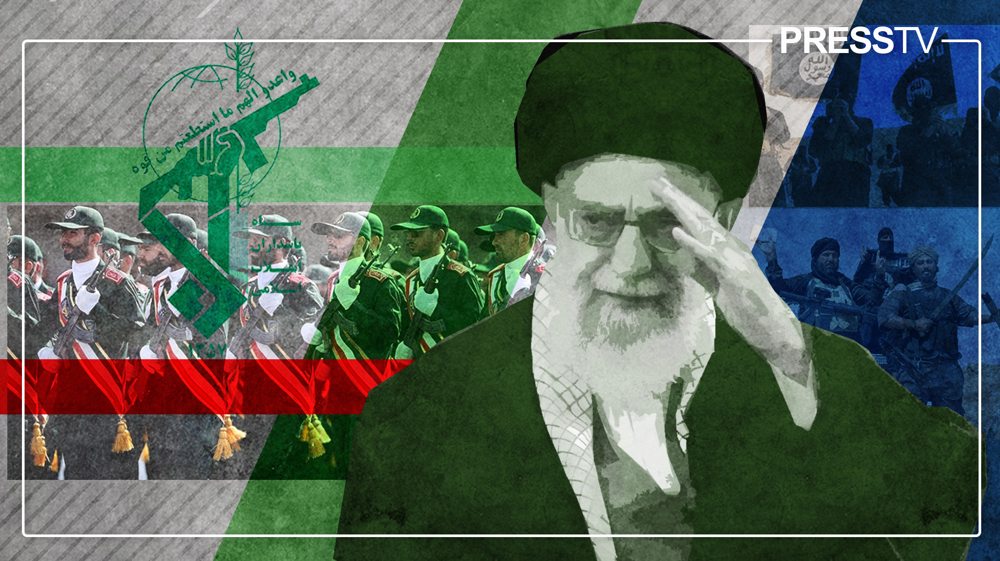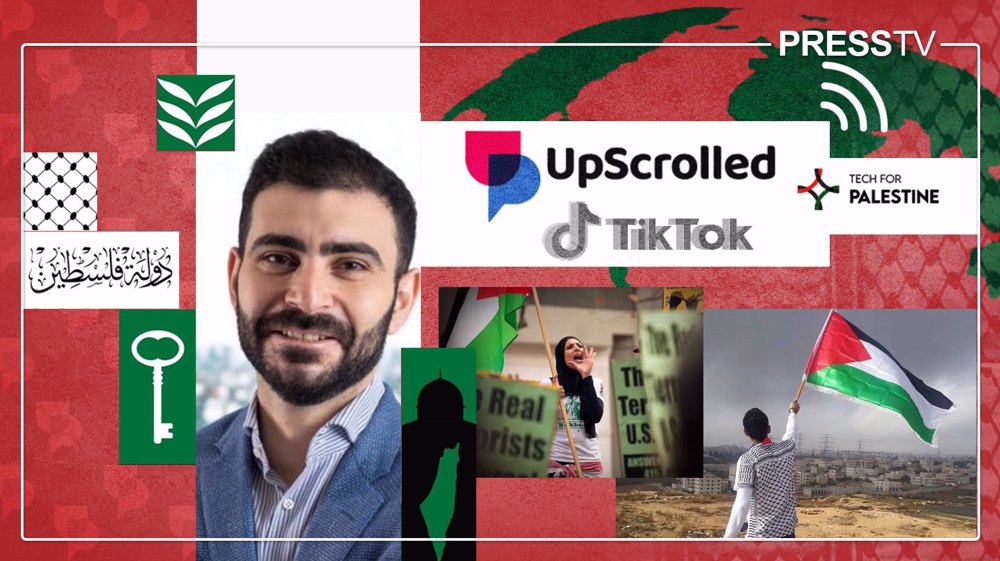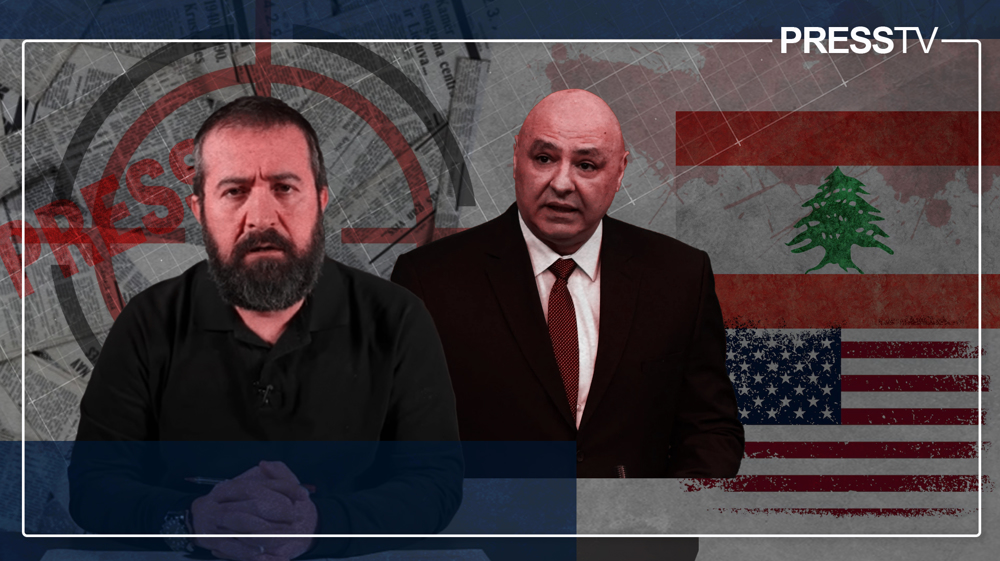Corrupt elements pushing Lebanon’s protests to attack Hezbollah
By Robert Inlakesh
Robert Inlakesh is a journalist, writer and political analyst, who has lived in and reported from the occupied Palestinian West Bank. He has written for publications such as Mint Press, Mondoweiss, MEMO and various other outlets. He specializes in analysis of the Middle-East, in particular Palestine-Israel. He also works for Press TV as a European correspondent.
The Lebanese protest movement, aimed at forcing in government reforms and the ending of a corrupt rule in the country, is in its second month. Now after the murder of one protester and clashing of rival sectarian groups, the fears of a nation have been stoked and Lebanon could be on a slippery slope heading towards civil war.
The majority of the people who first rose to the streets in Lebanon were genuinely there to change the socio-economic conditions under which they suffer and this is still true of many demonstrators. However, now it has become very clear that corrupt Lebanese officials as well as foreign powers are influencing the events in Lebanon and there are more than just allegations to prove this.
The demonstrations which are ongoing in Lebanon, started on the 17th of October due to austerity, government corruption and unfair taxes. One of the issues concerning many of the demonstrators was the unrepresentative sectarian political system, currently plaguing the country. This sectarian fixed order structuring Lebanon’s political system, forces the country to always take a Christian President, a Sunni Muslim Prime Minister and a Shia Muslim speaker of Parliament. This type of political system is called confessionalism and was introduced to Lebanon by the French, it is also the system of government now installed in Iraq following the toppling of Sadaam Hussein by the US Bush Jr. Administration.
For the first time, in such numbers, Lebanon’s demonstrations began as a non-sectarian protest movement. It was the Lebanese people against the government. At least this was the idea of many in the streets anyway. But unfortunately such a revolt, which had no leadership or specific politically planned solution to offer, was taken advantage of by the usual characters such as Samir Geagea, Walid Jumblatt and Nabih Berri inside of the country.
Samir Geagea is one of the most prominent Maronite Christian leaders in Lebanon, he is an ex-warlord and the current head of the Lebanese Forces, he is also closely affiliated with the Christian Phalangist movement. The Phalange or Kataeb Party - along with Israel - was responsible for the September 1982 massacre of thousands of Palestinian refugees in Sabra and Shatila. It is well known that Geagea communicated with the Israelis in the past and is widely renowned as a corrupt official.
Interestingly Samir Geagea’s Lebanon Forces resigned from the Lebanese government and joined together with the protest movement against the government. This is despite the fact that many of the demonstrators are in the streets against his Party’s corruption, amongst the corruption of others. To make things worse, the Lebanon Forces are now amping up their rhetoric of hate towards other rival Christian Party’s and also Hezbollah, in what has been interpreted a sectarian mission to incite violence. It is well known, the connections between Geagea and foreign powers, the most worrying of which is Israel because the collaboration between the two is still a strong possibility.
Walid Jumblatt, the influential leader of Lebanon’s Druze community and head of the Progressive Socialist Party has supported the demonstrations, sending his people to block major roads. Jumblatt supports the protest movement to overthrow the government, despite the fact that he is one of the key influential power brokers that many are seeking to uproot. The first death of the protest movement in Lebanon was at the hands of Lebanese army and the victim was a man, Alaa Abu Fakher, who supported Jumblatt. Jumblatt is attempting to come out of this predicament unscathed and to rise to further prominence instead of bearing the brunt of the Lebanese uprising. Historically Jumblatt has been unpredictable when it comes to alliances and may quickly side with or turn against groups depending upon what suits his agenda.
Nabih Berri, the leader of the Shia Amal movement, is one politician that did not back the protest movement and instead sent his people into the streets to attack the demonstrators. Nabih Berri’s Amal Movement interestingly had a hand in the Sabra and Shatila massacre - as well as the Phalangists and Israel who were primarily responsible - withdrawing his protective forces from the Palestinian camps, which then left the civilians there defenseless. The Amal movement was seen as particularly sinister in this circumstance as they were supplied with the bulk of their weapons, at the time, as a result of the Palestinian forces departure from Lebanon. Meaning the weapons they obtained were formerly in the hands of the Palestine Liberation Organization (PLO) - led by Yasser Arafat - which was forced out of Lebanon, at gunpoint in 1982, by the Israeli invaders.
The mainstream Western press, instead of reporting upon the actions of the Amal movement when their members took to the streets to physically confront the protesters, reported that it was Hezbollah that solely was responsible for these actions. Using videos of people carrying Hezbollah flags who got themselves into confrontations with demonstrators, as a lazy way of demonstrating this point to the Western public, this is without checking to see the real stance of Hezbollah. The Secretary General of Hezbollah, Sayyed Hassan Nasrallah, has denied that the movement had sent its people to attack the demonstrators and urged his people to remain home rather than take to the streets. This decision was made in order to stop violence between those with opposing political opinions.
Despite the fact that Hezbollah has not threatened the protesters and has supported their rights to protest, the Western, Israeli and Persian Gulf State media has attempted to negatively portray the group as if it had directly threatened the people of Lebanon.
Hezbollah took a stance against the overthrow of the Lebanese government, with Nasrallah explaining this position, citing examples from other countries in the region which had been ravaged by war as a result of power vacuums. This stance, drew more than just criticism from some, with small groups beginning to call for the disarmament of the resistance movement. A position which would of course put all of Lebanon in a dangerous position and open to another Israeli invasion.
To make things worse, the former Prime Minister Saad Hariri and Lebanese President Michel Aoun are engaging in blame game tournament, as both seek to maintain their own political power. This has led to a currently unstable situation in the country, where the people are calling for a technocratic government to be formed but have no plan as to how this should be done.
Fake Western And Israeli Support For Lebanon’s Revolt
Almost all major news programs and websites across the Western world have reported of Lebanon’s protests in a favorable manner, many Western politicians have also came out in support of the demonstrations also.
The support from the West is particularly ironic, as it is the West that created the system that the Lebanese people now revolt against. It was the French whose interference in Lebanese affairs constructed Lebanon’s current system and it was the actions of the French which led to sectarian violence and the divisions we see today.
It is also the International Monetary Fund (IMF) and World Bank that have held Lebanon indebted and enslaved to it. The United States also has a leading role in deciding the financial affairs of Lebanon.
Israel has not only invaded Lebanon multiple times, raising the country’s infrastructure to the ground and killing tens of thousands of people, but they have also occupied the country and still illegally hold the Shebah Farms area which rightfully belongs to the Lebanese. On top of this, the Western media infatuation with Hezbollah’s so called attacks on the countries protests is not only false, but if it wasn’t for Hezbollah in the first place, the protesters would likely not be protesting the Lebanese government right now, but rather the Israeli.
A foreign plot against Lebanon?
It is not only the Western Press that has had a hand in Lebanon’s protests. The US-led National Endowment for Democracy (NED) organization now has a hand in the protests too. The NED for those not aware has historically been involved in regime change protests from Nicaragua, Venezuela, Ukraine and Hong Kong. The organization describes itself as a non-profit organization and has pumped tens of millions of US dollars into protest groups it has set up in its target countries. An example of those on the organization's board of directors are the likes of infamous neoconservative Elliot Abrams, who served under Ronald Reagan and now Donald Trump’s government.
The US Congress has also recently upped its threatening rhetoric towards Lebanese Hezbollah, with 240 US Congresspeople signing a letter to the United Nations, voicing concern over “Hezbollah’s security threat to Israel”. An act praised by AIPAC, a lobbying group largely regarded as having the strongest hold of any lobbying group over Washington DC’s foreign policy decision making .
The US has also stated that it will intervene if Hezbollah is to use force to put down Lebanon’s ongoing protests. This is especially concerning coupled with the letter addressed to the UN, as the US had called for an enforcing of UN Security Council Resolution 1701, which they claim Hezbollah has violated, ignoring Israel’s near daily violations of the resolution.
UN Resolution 1701 was passed in order to conclude the 2006 war between Lebanon and Israel, in which Israel killed over 1,000 Lebanese and was later, many believe, decisively defeated by Hezbollah as the Israeli offensive was repelled. Since then Israel has, on a near daily basis, violated Lebanese sovereignty by land, air and sea. Earlier this year Israel also instigated a brief trade of blows between Hezbollah and itself, after an attempted loitering munition attack on Southern Beirut.
Another factor to consider is that the Lebanon protests can be used to counter, what the West, Saudi and Israel view as the ‘Iranian threat’, in Lebanon. Meaning that Iranian ally Hezbollah is a target that they are looking to weaken through the exploitation of instability.
In late 2017, Saudi Arabia attempted to create such instability when they held former Lebanese Prime Minister Saad Harriri against his will in the country and forced him to resign from his position back then.
The fate of Lebanon hangs in the balance
The widely understood objective of Israel’s project of domination in the Middle East is to prohibit all neighboring countries in the region from having fully autonomous governments. They seek to expand their territory, annex land and prevent the Palestinians from ever achieving their national liberation and human rights.
Part of this Israeli project involves weakening and destroying the governments of the Middle East, which Israel has had its hands in throughout the region. The aims of Israel are also carried out through the United States, which has the same agenda. Yet their projects haven’t proved fully affected and have in fact come with a price.
The days of overthrowing governments through direct military action against them, is all but over. The US and Israel understand the price involved with all out war and occupation, so instead they began to use a new strategy of utilizing sectarian groups in order to fight wars for them. In the case of Syria they armed terrorist organizations to do their bidding and in the end that also backfired.
Now it seems that the West seeks to capitalize on the genuine frustrations of the general population, watches the people rise up in protest and then sends in its agents in order to create friction which it can then hope to use as a starting point to destroy governments.
Just as with sanctions, this tactic could be an effective strategy, which will cause suffering to the general population of those living in countries the US and Israel consider as enemies.
If Lebanon does not find a way to form a government successfully and to deal with its economic situation, the country could unfortunately plunge into an all out civil war which could be even bigger than the civil wars of the past.
(The views expressed in this article do not necessarily reflect those of Press TV.)
Leader’s advisor warns of ‘deep’ retaliatory strikes into occupied territories
US Department of Justice releases millions of Epstein files, then pulls pages citing ‘rape’ by Trump
VIDEO | EU blacklists anti-terror organization
VIDEO | 44th Fajr Theater Festival underway in Tehran
VIDEO | Press TV's news headlines
VIDEO | Oil workers' march in support of reform of Venezuela's main oil law
VIDEO | Malaysians hold rally in front of Iranian embassy to condemn US, Israel threats
Israel to partially reopen Rafah border crossing after long closure















 This makes it easy to access the Press TV website
This makes it easy to access the Press TV website